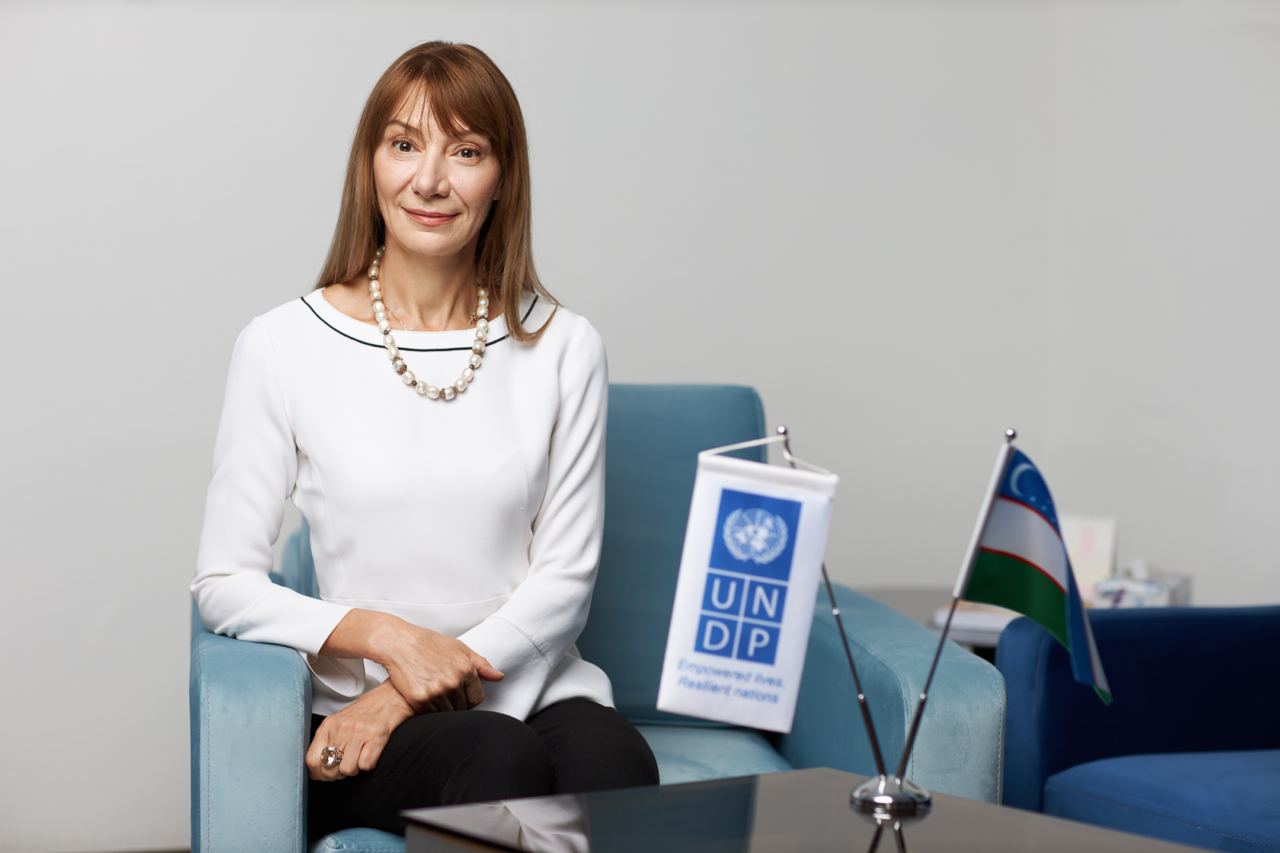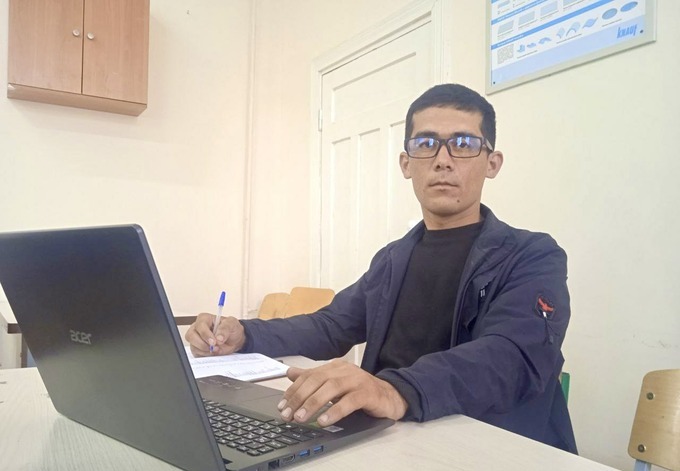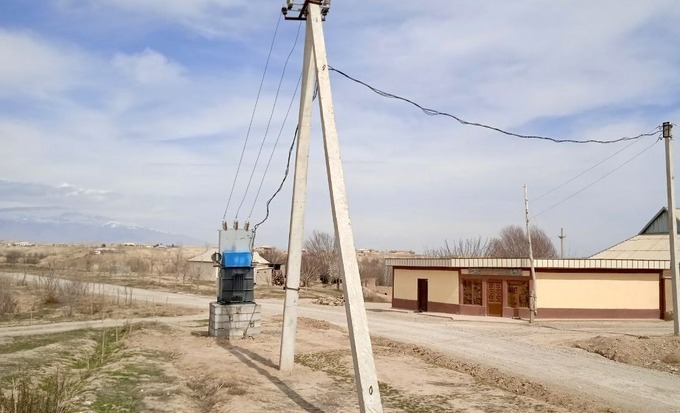An effective approach for reducing poverty and contributing to the achievement of the Sustainable Development Goals
Participatory budgeting: from piloting to developing new practices
October 17, 2022

The Government of Uzbekistan introduced participatory budgeting (PB) in 2019, a process where citizens take part in decision-making to determine how, where and in what priority the public funds are spent. The current PB cycle is coming to an end and the results show an increased interest in PB among the population, the media and civil society institutions. Since the introduction of PB, the number of proposals for use of public funds submitted by citizens has increased 2.5 times, citizens votes increased almost 10 times. Matilda Dimovska, UNDP Resident Representative reflects in this blog about how participatory budgeting has developed, and what benefits and development opportunities it is creating.
Development of participatory budgeting in Uzbekistan
Uzbekistan first introduced participatory budgeting in response to the Presidential Decree “On measures to ensure openness of budget data and active participation of citizens in the budget process, adopted in August, 2018. These steps laid the groundwork for allocating at least 10 percent of surplus revenues of districts’ budgets to finance areas (activities) proposed by citizens.
In 2021, however, PB received broader political and financial support. The Presidential Decree “On additional measures to ensure the active participation of citizens in the budget process”, adopted in April, 2021, called for allocation of 5 percent of the approved total expenditures of the districts (cities) budgets to finance proposals submitted by citizens. At least 30 percent of additional revenues of districts and cities budget are also to be directed to the initiatives of citizens.
In 2021, the new mechanism for distributing budgetary funds for citizens’ initiatives was piloted in one district of the Republic of Karakalpakstan and in every region of Uzbekistan. Since 2022, the practice of participatory budgeting has been extended to all districts of the Republic. Each year there are two cycles of nomination and selection of citizens’ proposals for financing from budgetary funds. This year, in August, the second cycle has already been launched.
As citizens learn more about this mechanism and its results, their interest, trust and sense of ownership should grow accordingly. Thus far, the numbers speak for themselves. The scaling up of the budget funds allocated to PB has led to a 2,5-fold increase in the number of proposals submitted by citizens from 28,704 in 2019 to 69,700 in 2022, while the number of citizens who voted increased from 87,7 thousand to 6,7 million respectively. Furthermore, the number of projects selected for funding has increased from 1,102 to 2,354. Behind these numbers there are actual citizens who, through their own initiatives, have been able to solve infrastructural challenges in their communities, making their lives and the lives of their neighbours better and more comfortable.
The mechanism of Participatory Budgeting in Uzbekistan is equipping the citizens with an important leverage to prioritize and accelerate certain initiatives that might have taken longer if left waiting for its turn in the regular Government planning process. Also, to avoid overlapping, citizens are notified in case if there the projects they submit to the selection commissions coincide with other investment plans.
Accelerating the achievement of the Sustainable Development Goals through Participatory budgeting
The introduction and expansion of PB practices is helping the Government to reduce poverty, thereby contributing to SDG1, which calls for the end of poverty in all forms through access to education, healthcare, markets, etc. PB is particularly useful in rural areas with inadequate infrastructure, where most roads are unpaved and difficult to use in the rainy season. Throughout most of the year, the poor condition of the roads makes it difficult for people to get to work, and for children to go to school. It also hinders mobility and transport, obstructing rural areas from domestic and regional markets, thereby contributing to economic underdevelopment.

For example, people of Yangihayot makhalla in Qumqurghon district of Surkhandaryo region faced challenges related to frequent power outage. Needess to say, that absence of internet, dim lighting, inability to use electric appliances caused a lot of discomfort in their daily routines.

Oybek Usanov, an architecture student from that makhalla, saw it as a big obstacle in his studies. He sent a proposal to install a power transformer in his makhalla and it received enough votes to be financed from the local budget resources. Today, every house in Yangihayot makhalla has access to stable and quality electricity and Oybek managed to initiate more improvements in his makhalla using the “Open Budget” portal.
A more recent example from this year: an active resident from Jumabozor makhalla in Tashkent region submitted an application requesting to repair a 1.5 km long road, and got almost 650 million UZS (approx. USD 60,000) allocated from public funds to rehabilitate their rural access roads. These are two of thousands of cases that were brought up in the priority list and found its quicker implementations thanks to citizens’ proactive engagement via participatory budgeting platform.
Opportunities to expand participatory budgeting
Although there have been remarkable achievements in this area, there is room for more progress and to involve more citizens. First, citizens’ awareness of their involvement in budget decision-making is key for their active participation, without which the introduction of PB will remain a formality. Therefore it would be useful to broaden the information campaign and raise awareness about the PB mechanisms, its opportunities and benefits. That would further incentivize citizens to participate in the budgeting process.
Furthermore, it is also important to improve budget literacy and thus empower citizens to participate in all stages of the budget process. The system is more efficient when communities understand the importance of not just submitting proposals, but also discussing them, and insisting on public control. To strengthen the role of civil society in monitoring the implementation of projects funded through participatory budgeting as well as to make them more inclusive, training programmes can be supplemented with educational modules targeting women, youth, vulnerable segments of the population and other marginalized groups. To institutionalize the process, it is important to develop guidelines and training courses on participatory budgeting, train the trainers, and through awareness raising campaigns disseminate good practices.
The proposed measures to raise citizens' awareness and their budget literacy are critical for a proper understanding of the opportunities provided by PB, the citizens’ roles in this process and the value of their voices in promoting projects aimed at solving the most crucial local problems. As evidenced by practice, PB participants, in particular, active citizens interested in promoting their projects fill the information void. When the voting process begins, citizens conduct agitation campaigns in their respective regions. Citizens agitate the public in crowded public spaces for specific projects and collect votes for a small reward. In such a case, citizens may cast their vote (via SMS message) for the project without even knowing what it is about, significantly increasing its chances of success. Only a broad information campaign involving NGOs, training of trainers to assist citizens in developing their projects, and organising meetings with citizens to explain the PB opportunities and the importance of their voices will help increase citizens' responsibility in submitting initiatives and voting.
Scaling up PB best practices depends largely on available funding. Many additional sources of funding could be leveraged to co-finance citizen initiatives, such as crowdfunding, diaspora funding, corporate philanthropy, etc. Thus, the implementation of public projects can leverage not only state resources, but also private funds and the funds of PB participants, which will increase their involvement in the problems being addressed and the value of the initiatives being implemented. Needless to stress, that all these options shall be carefully introduced, if feasible and publicly acceptable.
In conclusion, I want to note that UNDP supports citizens’ full and active participation in identifying and prioritizing local development projects, voting for them, and monitoring their implementation; and believes that PB can significantly enhance their sense of ownership and improve their quality of life.
Our experts supported the Government in developing the methodology and choosing the participatory budgeting model for Uzbekistan, based on the review and analysis of international best practice in this area. We worked with the Ministry on improving the “Open Budget” portal, which now allows thousands of citizens to easily submit their proposals, participate in discussions and vote for the best projects. For active participation of citizens at a local level, UNDP also supported the Ministry to conduct an awareness-raising campaign and a series of training sessions for specialists from the territorial departments of the Ministry of Finance.
While the initial steps in introducing Participatory Budgeting in Uzbekistan have demonstrated quite positive results, there is still progress to be made in shifting the centre of budgetary process to citizens. UNDP is committed to continue working on this together with the Ministry of Finance of the Republic of Uzbekistan

 Locations
Locations